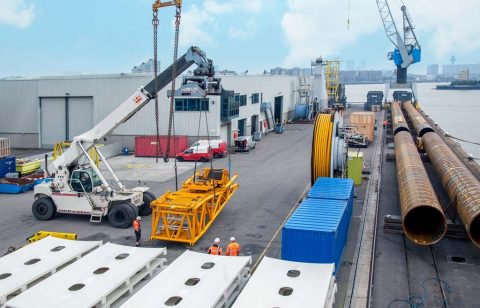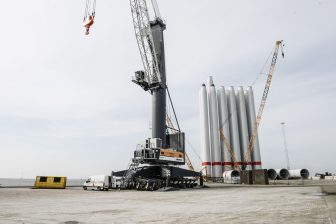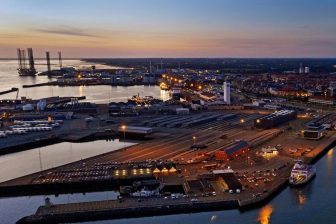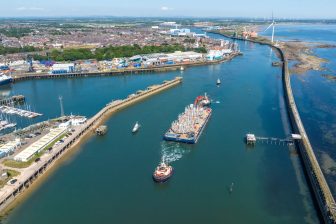
Containers drive growth in Rotterdam, breakbulk remains stable
The port of Rotterdam has recorded a total throughput of 240.7 million tonnes in the first six months of 2019, 3.4% more than in the first six months of 2018. The growth was mainly driven by the container throughput, which increased by 6.4% to 7.5 million TEU. Breakbulkvolumes remained stable.
The growth in the container throughput was mainly driven by higher import and transhipment volumes. Other cargo segments that performed well were crude oil, which increased by 2.8% driven by more imports of cheaper oil from the United States, and LNG, which almost doubled in volume as a result of increased exports from the United States to Europe.
Breakbulk cargo increased by 2.1% thanks to growth in the ro/ro segment. Ro/ro volume grew by 2.7% to slightly more than 12.3 million tonnes. Conventional breakbulk volumes remained more or less stable at 3 million tonnes in the first six months of 2019, reflecting a decrease of 0.3%. In the first quarter of 2019, however, Rotterdam recorded conventional breakbulk growth of 3.1%, which means that volume was lost in the second quarter.
In a recent interview with PCJ, Port of Rotterdam’s Breakbulk Director Danny Levenswaard said the port sees room to grow its breakbulk and project cargo volumes. To achieve this growth, the port is facilitating the expansion of four multipurpose and heavy-lift terminals and building a new “offshore centre” on Maasvlakte 2.
Financially, the port authority recorded a 4% growth in revenue which amounted to EUR 357.8 million, with liquid bulk making the largest contribution. Partly because operating expenses rose less than revenue, the result from ordinary activities before taxation improved by 7.0% to € 134.8 million.
“Throughput in the port is doing well, particularly in the strategically important container market segment. The financial results of the Port Authority are good. We can, therefore, continue to invest in the port, in physical infrastructure and in digital solutions for trade and logistics,” CEO Allard Castelein remarked.
Looking ahead Castelein expects the cargo growth to weaken in the second half of 2019 due to geopolitical uncertainties. “In the macroeconomic field, relations between the world’s major trading blocs remain strained. There is also ongoing uncertainty about the introduction of trade tariffs post-Brexit. Both developments are rendering the prospects for the further growth of world trade uncertain. Given the global uncertainties mentioned here, the Port of Rotterdam Authority expects a slight weakening of the growth in cargo throughput in the second half of 2019,” he said.
You just read one of our premium articles free of charge
Register now to keep reading premium articles.




